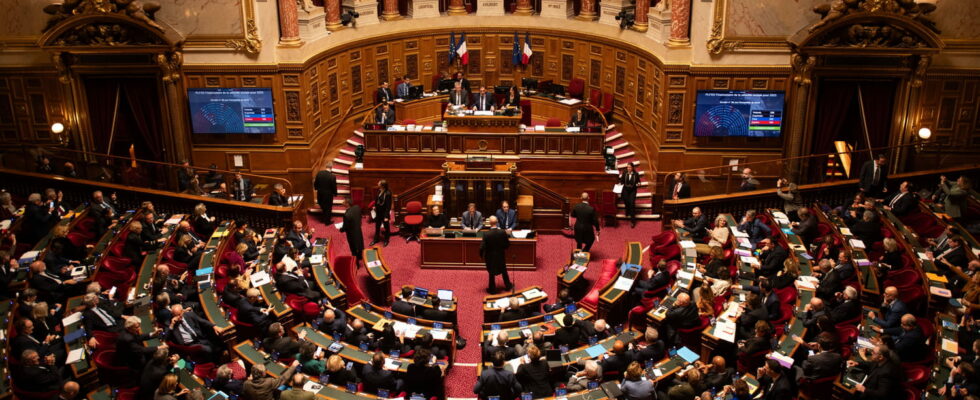The special law to avoid administrative paralysis was definitively adopted by both chambers of Parliament, the National Assembly and the Senate, on Wednesday, December 18.
The “special law” allowing the State to maintain its tax revenues and ensure its operation from January 1, 2025 was definitively adopted by Parliament this Wednesday, December 18. Without much surprise, the senators unanimously voted in favor of the 345 voters, without modifying the version voted on Monday by the National Assembly. Its promulgation before December 31 is ratified.
Please note, it will not be able to index income tax and its scale to inflation, a proposal deemed inadmissible due to the extremely restricted scope of the “special law”. As a reminder, the use of this “special law” follows the motion of censure which was voted by the absolute majority of deputies, and more (331 elected), last Wednesday December 4, against the government of Michel Barnier. Once appointed, the new government team will take over with the proposal of a new budget, debated from January 2025.
Special law: 3 short articles for investing and borrowing
The option chosen by the government is therefore recourse to article 45 of the organic law relating to finance laws (LOLF). It allows the country to operate without a voted budget. This “joker” is based on a “special bill authorizing it to collect existing taxes”, until the vote on a next finance bill at the start of next year. In other words, by continuing to apply the 2024 budget. Through this process, Emmanuel Macron intends to “ensure the continuity of public services and the life of the country”, he declared on Thursday December 5.
The proposed text is relatively summary, with three articles. First, a first article of law authorizing “the State to collect existing taxes”. Emmanuel Macron recalled this last December 5, “it is necessary to have this budget at the very beginning of next year to allow the country to invest as planned. For our armies, our justice, our law enforcement , to help our farmers in difficulty”. In this sense, the other two articles will authorize the State to resort to borrowing, the same for Social Security, by increasing the debt ceiling of the Central Agency of Social Security organizations. On the other hand, no new tax measures are possible.
“There is absolutely no risk of a shutdown” in the American style
“If you don’t have a budget for next year, that means that civil servants are not paid,” said the former Prime Minister and now Calvados MP, Elisabeth Borne, on the C to You, last October 24 during the promotion of his book. A notable release, which recalls a practice rather associated with the United States. Indeed, this situation is possible on the other side of the Atlantic. It is called “shut down” and consists of closing administrations if the American Congress does not agree on the vote on a budget. However, in France, the operation is not the same.
To get there, the text had to be definitively rejected by both chambers of Parliament: the National Assembly and the Senate, at the same stage of the process, and during the same reading, which is very rare and which didn’t happen. Also, the Constitutional Council should have validated a special bill which would have allowed the executive to collect taxes and pay a minimum volume of credits. Ordinances would have finally made it possible to ensure the payment of civil servants’ remuneration.
“There is absolutely no risk of a shutdown. There will be vital cards that will work, civil servants will be paid. We must get away from apocalyptic scenarios,” indicated Benjamin Morel, constitutional expert and lecturer in public law, in the columns of Europe 1, Monday December 2. With the final adoption of the “special law” by Parliament, it is now official, no shutdown is possible.
